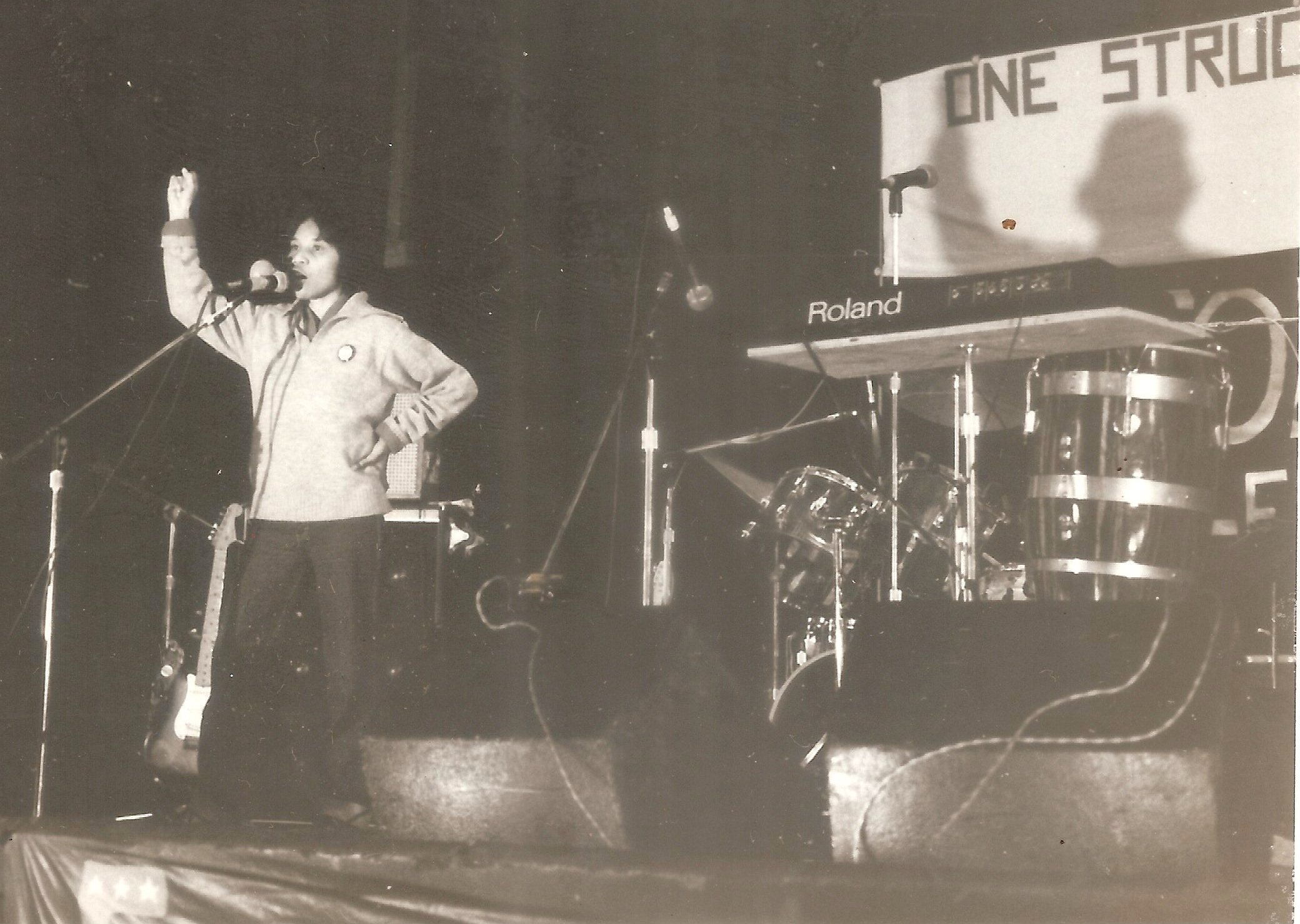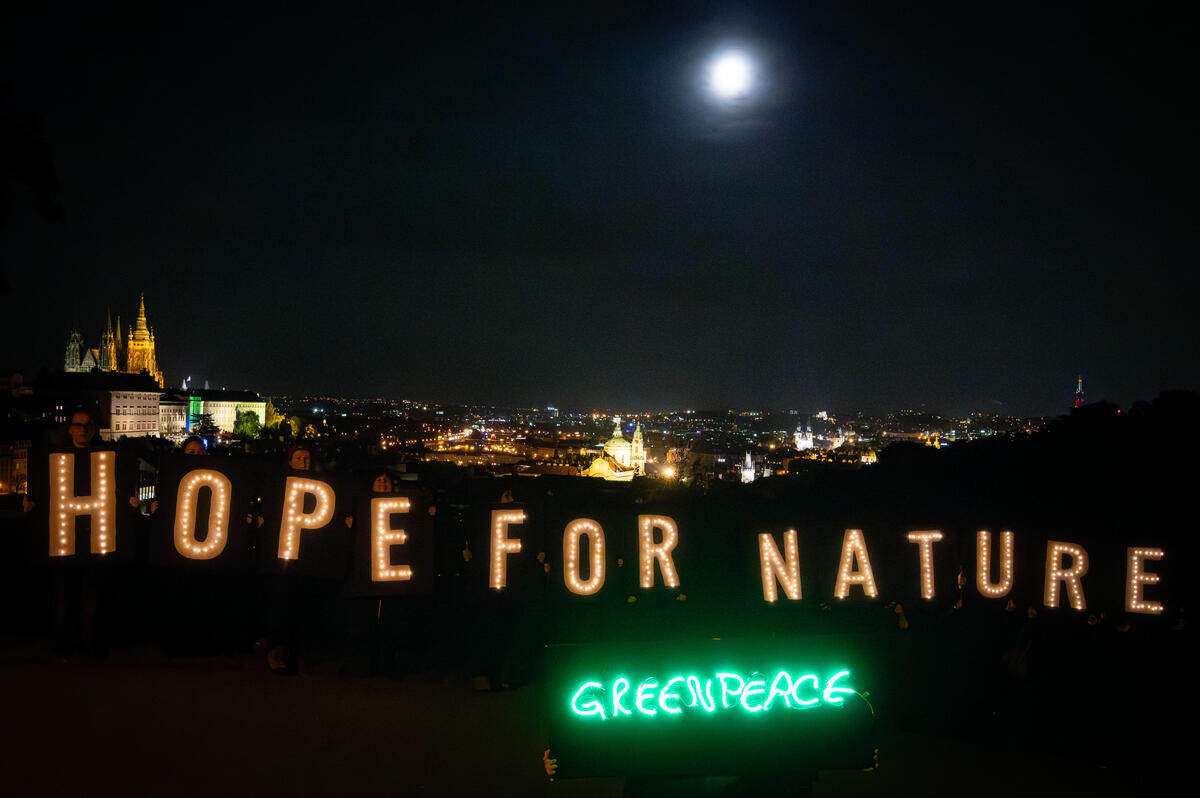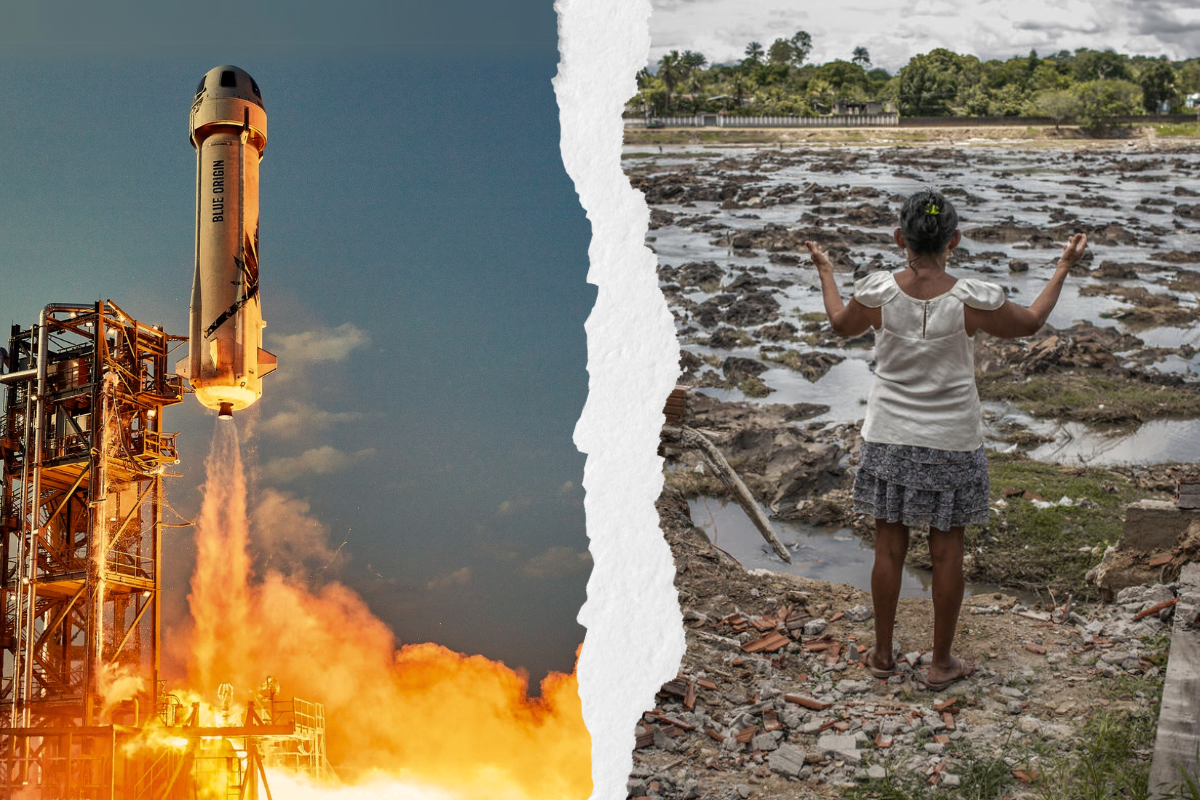This story was originally posted by Greenpeace Italy, in Italian
Intense rain and thunderstorms, hail and strong winds hit the Valle d’Aosta and Piedmont regions in northwestern Italy recently, causing flooding of waterways, landslides and the isolation of entire towns. These communities are facing a devastating disaster, with hundreds of people displaced and injured. Seven people reportedly were killed in neighbouring France and Switzerland and there are additional victims and missing persons. We express our deepest solidarity with everyone affected.
People have experienced moments of terror, have been evacuated, lost family members or seen their homes and businesses destroyed, finding themselves now in extremely difficult situations. Sadly these are challenges faced by communities around the world who are impacted by extreme weather events.
The oil and gas industry makes huge profits from people’s suffering, reportedly over US$ 2.8 billion every day for the past 50 years. Currently, big oil pays nothing towards the costs of increasingly severe extreme weather events despite the fact that they have known for decades that they’re fueling extreme weather, but invested billions to hinder climate action. The price is left with all of us, especially those hit the hardest.
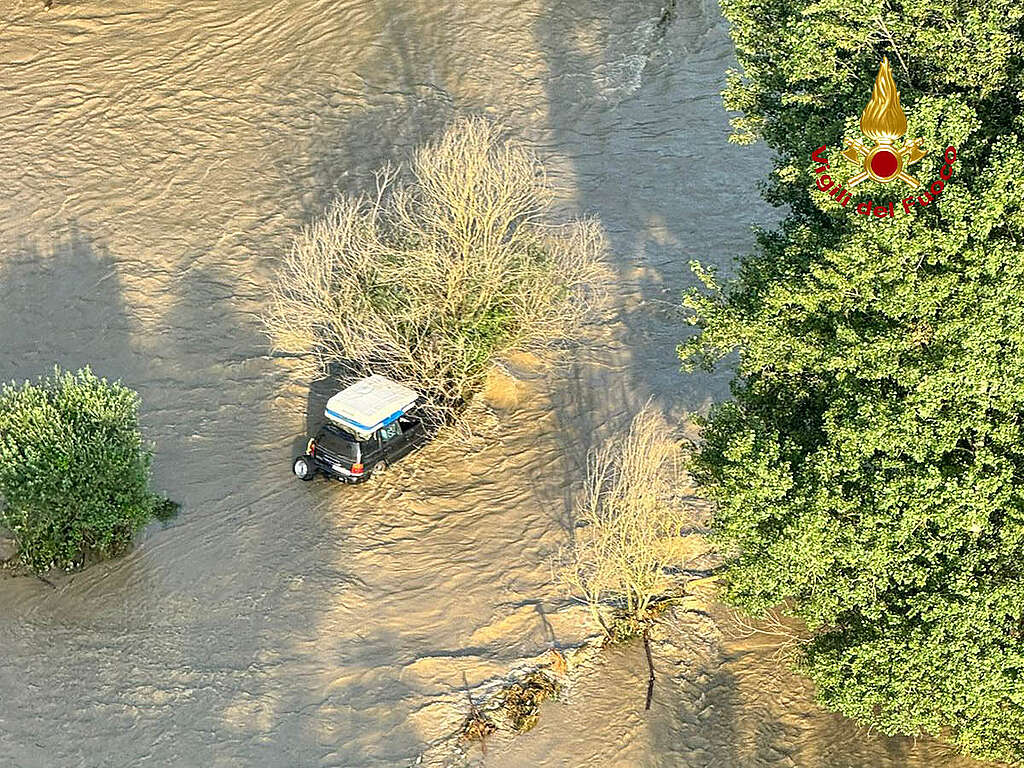
The devastating effects of the climate crisis
This is not just an exceptional weather event, but the real consequences of climate change driven by the polluting fossil fuel industry. We spoke with Antonello Pasini, climate physicist from the CNR, Italy’s National Research Council, about how climate change driven by human activity is causing extreme weather events in the region to become more frequent.
“Global warming of anthropic origin in the Mediterranean basin has caused air circulation to change, increasingly leading to the entry of strong anticyclones. These bring great heat and drought, but when they give way, even just slightly as happened in this case, they bring in colder currents that generate an enormous thermal contrast with the pre-existing warm and humid air, all on a very overheated land and sea. All this generates violent rainfall and flash floods.”
“This, especially in northern Italy, is the result of human-made climate change. Heat and drought on the one hand, flash floods on the other, are unfortunately two sides of the same coin: recent global heating.”
The situation in the flood-stricken areas of Italy remains critical and the emergency is not over. Extreme weather continues to devastate communities around the world. The climate crisis is a reality that impacts the lives of each and every one of us.
Who pays?
Extreme events such as those that hit Piedmont and Valle d’Aosta regions continue to cause damage and losses in human lives, devastating ecosystems and racking up staggering economic costs. This is true for hurricane Beryl hitting the Caribbean, extreme heat and wildfires in Greece and Turkey, fires in Brazil and the list goes on.
Those who pay the highest price for all this are the people and communities most exposed to extreme weather events, with fewer safety nets. The bill for this devastation should of course be borne by those truly responsible: above all, the large oil and gas companies that continue to make record profits fueling the climate crisis and putting people’s lives at risk around the world while spreading disinformation and delaying climate action.
Join us in demanding that fossil fuel companies must be forced to repair and pay for their lies and the damage they have caused.
Federico Spadini is a Climate Campaigner with Greenpeace Italy.
Tal Harris is the Global Media Lead for the Stop Drilling Start Paying campaign at Greenpeace International.
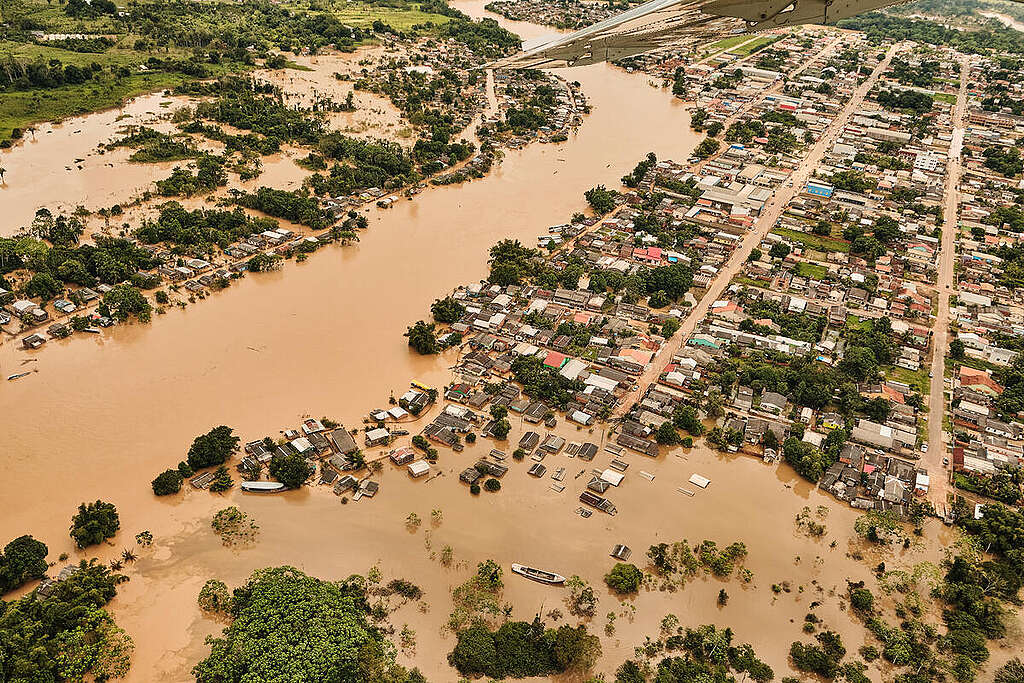
It’s time to make the polluters pay. Sign now to hold the oil and gas corporations accountable, and support a safe and fair future for all.
Add your name
